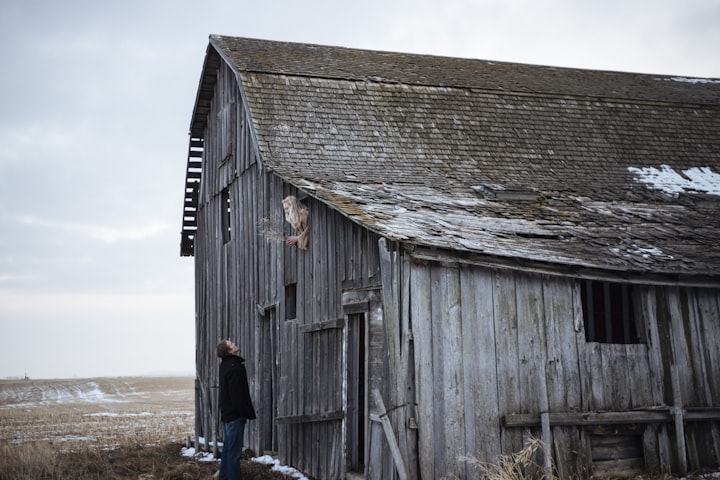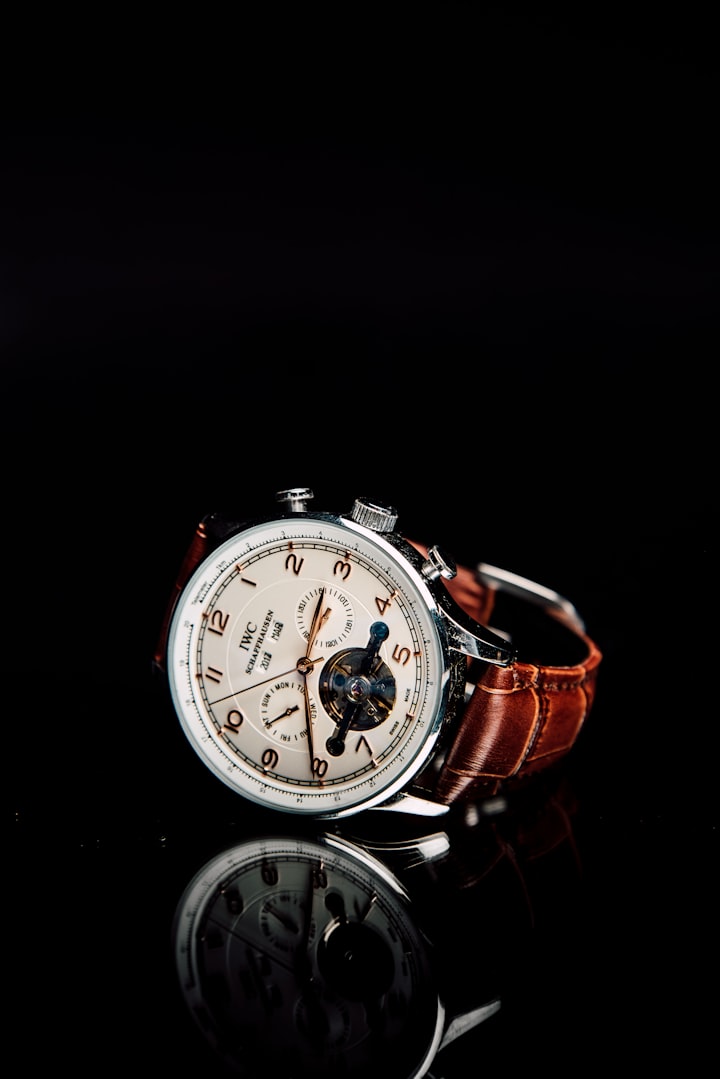
Zoe sat sipping her coffee in the sun, enjoying the coolness of the late morning air, "do you hear that?" she asked her wife, a contented smile across her lightly freckled face.
"What?"
Zoe sighed, pushing her thick red hair behind her ear, "that," she said, "the kids playing." She stood up and looked over the railing of her 4th floor balcony at the small groups of children playing below, some in the park, some in nearby yards. It was a sound she feared she'd never hear again, a sound so precious, so full of hope. It was the very sound of life itself.
Janet smiled, poking her head over Zoe's shoulder, her arm draped lightly across her back, "well, it's all because of you, babe," she beamed.
"No, not really, it was way more than just me."
Janet shrugged. Zoe's humility was something she both loved hated about her wife. She loved the fact that she was more than willing to share credit for her accomplishments. But she really wished Zoe could accept just how amazing she was, that she could see herself through her eyes and those of everyone she touched. She wished for once her wife would stand up, head held high and say, "yeah, I did that." She deserved to bask in that glory. She deserved to be recognized.
Both Zoe and Janet had grown up on the west end of the city, known to locals as The Village. Growing up, it was THE place to be. Located right on the river, it was full of stately homes, funky little shops and cafes and a vibrant arts and theatre community.
It had been a wonderful place to be a kid. There were tons of other children around, and lots to do, from fishing and swimming in the river to summer drama and music camps. And everybody knew everybody. There was a sense of community; neighbours watched out for each other.
Zoe couldn't pinpoint exactly when things changed. It didn't happen all at once. It was more gradual, small, subtle changes that you really didn't notice until someone mentioned them. She figured it began in the mid-90's, when rumours began to circulate about the factory closing. People began to move away, slowly at first.
Then there were the layoffs, and then the factory did close, throwing over 3000 people city-wide out of work. In a population of just over 75,000, that's a lot of jobs. Some found other work, but for the most part, those jobs were much lower paying and without the benefits the factory had offered. Zoe herself ended up working retail at less than half her usual wage for several years. Others just moved away.
People began losing their homes and soon it seemed every second house was abandoned and left to fall into disrepair. Some were purchased by developers looking to make a quick buck by turning them into substandard apartment buildings.
Businesses closed, not being able to survive when their customers either moved away or no longer could afford to support them.
Over the period of 10 or 12 years, Zoe realized, The Village went from the best part of town to the drug - infested, crime ridden shame of an entire city. In fact, the very term "The Village" had become nothing more than a perjorative to describe the west end and it's empty, needle filled parks and squatter - inhabited flop houses. Residents in other parts of the city often joked about it, posting pictures on social media of people, passed out or strung out, on lawns or picnic tables and of thieves, scrawny from more dope than food, pushing shopping carts full of goods they'd liberated from thier neighbours. Murders, once something only seen on T.V. had become commonplace. One summer there had been at least one a week for 2 months.
Janet wanted to move, not only for her safety, but for her wife's, but Zoe refused. She wanted to take her streets back. It hurt her heart, and really pissed her off, to see what happened to her neighbourhood. That and, they couldn't afford to move. Two minimum wage jobs and $1400 a month in rent didn't add up to any savings.
A couple years ago, Zoe decided she'd had enough. One of her friends had been robbed in broad daylight just walking to her car. She started a group on Facebook called Village Voices and invited everyone from the neighbourhood she knew. It started out as a community action group with 2 goals, advising locals of suspicious activity and getting city officials to do something they hadn't yet done, listen to the concerns of the residents.
Soon, she was flooded with requests from others in the area to join the group. In between the ample discussions of crime, drugs and the lack of law enforcement in the west end, ideas began to flow, ideas about things they could do, as a community, to make things better.
One of the ideas was to plant flowers along Marvin Avenue, the main thoroughfare in The Village. Zoe remembered there used to be flowers and plants all along the street when she was young. Members of the group donated what they could to the cause and June 14 was the date set for planting. It would be a fun activity for the kids, something to keep them busy for a day, something positive.
Zoe took charge of getting the flowers. At the time, she hadn't realized how expensive they were. Seeds would have been cheaper, but she wanted the kids to see the immediate results of their hard work. While she didn't have any of her own, she knew children weren't known for their patience. The cheapest plants she could find were marigolds.
She rolled her eyes, the thought of those vile things made her shudder. They made the inside of her nose itch. They had to be the worst smelling flower in the world, like a mix of wet hay or wet dog and Dollar Store perfume. But they were a hardy plant and the price was right. In fact, when Mr. Donatello, the owner of the nursery, learned what the plants were for, he allowed Zoe to take as many as her old, rusty truck could hold for the $250 she had.
They came up with the name "Marigolds on Marvin" and advertised the time and date, inviting any and all community members and their children to take part. A local grocery outlet donated bottled water, hot dogs and buns. Mrs. Nelson, a kindly elderly woman who lived at the corner of Marvin Ave. and 1st St., allowed the use of her BBQ for the day.
The kids could hardly contain their excitement. They loved planting flowers, digging in the dirt and seeing how beautiful they had made the street. They beamed with pride, a feeling that some of them had never known in their young lives. And the adults were just as jubilant as the youngsters. There was something in the air and it was contagious.
The local news media came out to cover the story, giving the area some much - needed positive attention and soon the ball was rolling. A group of volunteers started regular cleanup of the local parks, safely removing and discarding needles and debris. Four men, headed by Harry Jensen, started a neighbourhood patrol, taking turns driving around the area in 3 hour shifts from 11pm to 7 am. Someone even erected a sign at the corner of Conrad Way and Marvin Ave., where The Village, officially began, warning "This Area Is Patrolled Regularly: All Crime & Drug Activity Will Be Reported to Police Immediately".
Municipal officials started to take notice as The Village's positive press and public pressure began weighing on City Hall. Suddenly, the Mayor wanted to know what he could do, and Zoe, Jane and the members of Village Voices were more than happy to tell him.
Marigolds on Marvin Avenue is now an annual event, sort of a children's fair, with the traditional planting of marigolds, as well as other flowers, a bouncy castle, crafts, games, face painting and lots to eat. It's become the event of the year, second only to the annual Bike Rodeo sponsored by the City. Police regularly patrol the area, in the summer on bikes, often stopping to have a friendly chat with members of the community. And in the 3 years since Zoe started her little group, the building inspector has shut down 7 substandard apartment buildings.

And people are coming back to the river and the boardwalk too. There isn't a time there isn't someone down there, fishing or just taking a stroll. A couple of restaurants have opened, as well as a bakery and a trendy wine bar.

The area's not perfect and it may never return to it's former glory. There are still problems. Many of the residents are still struggling financially. But they're safe and they're proud of their community again. Their children can play outside freely, the way children should. There's a sense of vitality and hope that permeates the streets, an optimism and a feeling of empowerment. And to think, it all started with a stinky marigold.
About the Creator
Misty Rae
Retired legal eagle, nature love, wife, mother of boys and cats, chef, and trying to learn to play the guitar. I play with paint and words. Living my "middle years" like a teenager and loving every second of it!






Comments
There are no comments for this story
Be the first to respond and start the conversation.